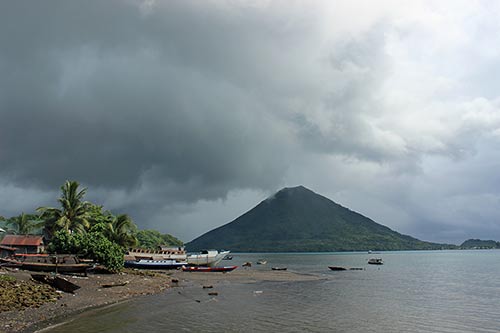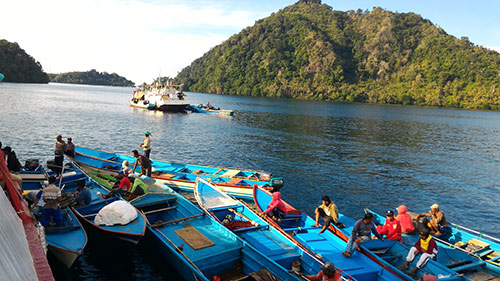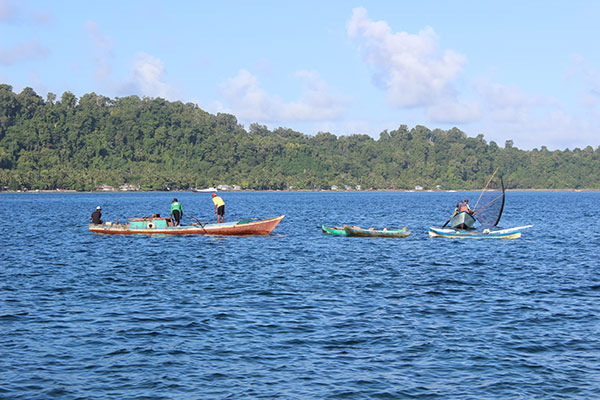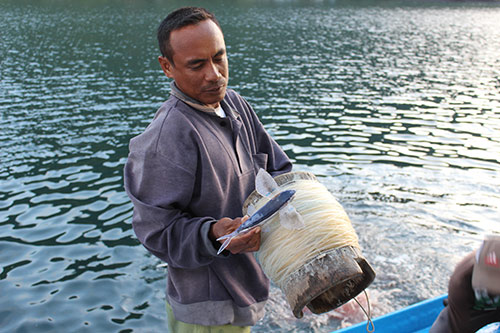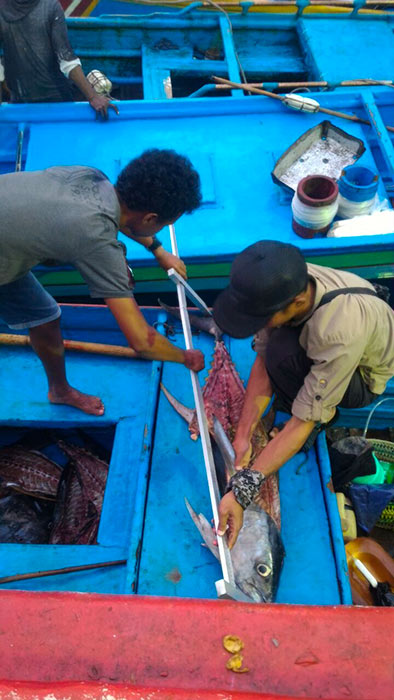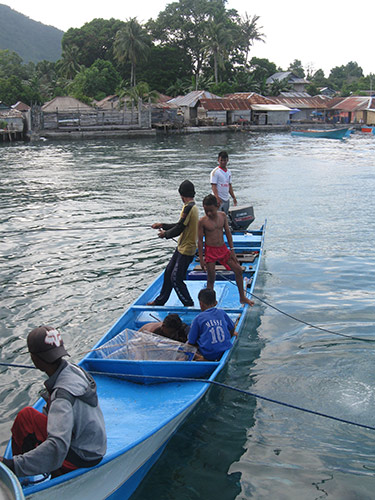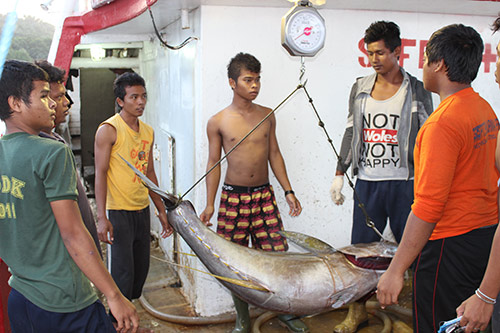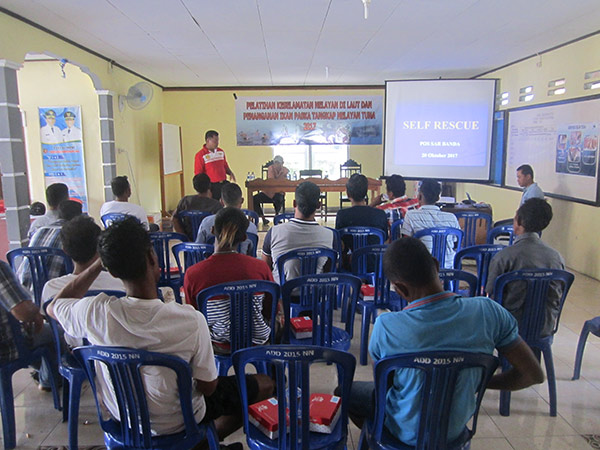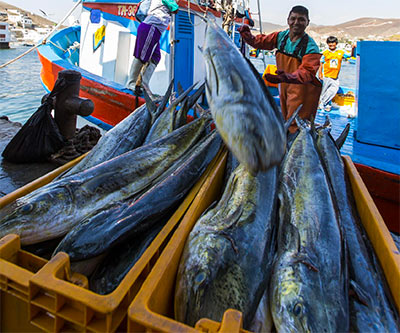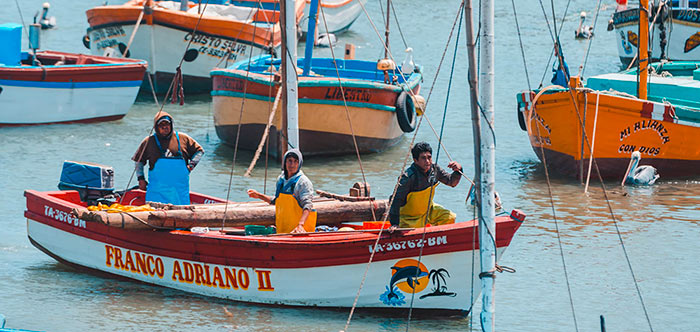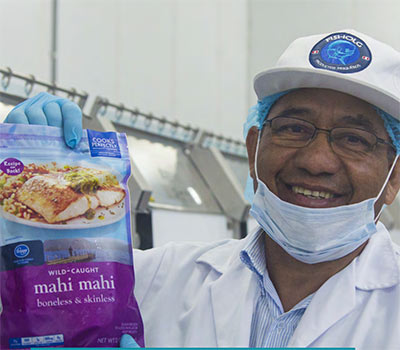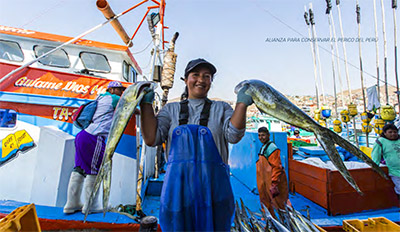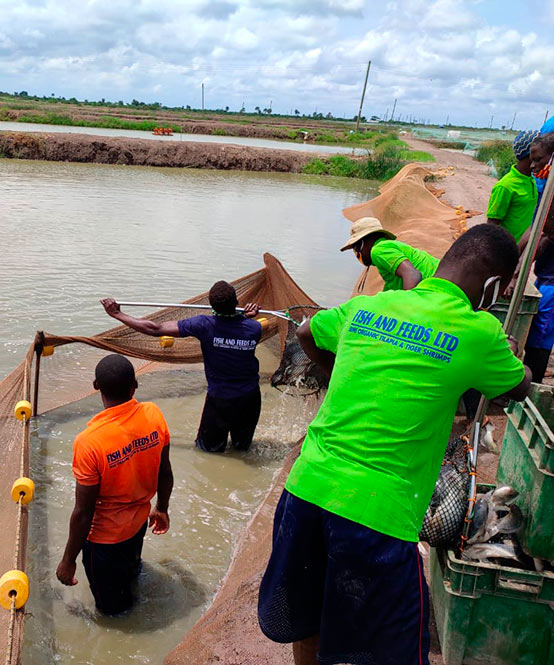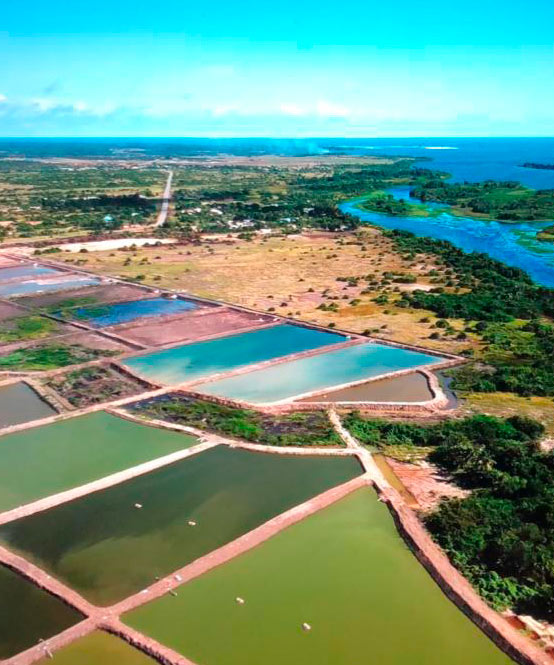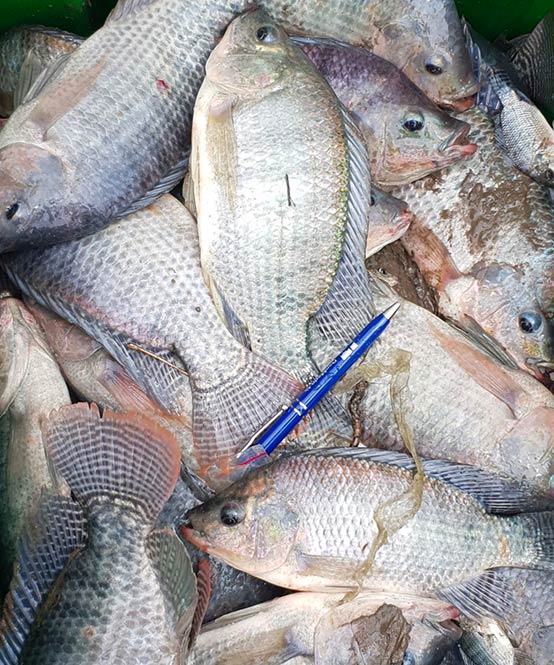Our Programs
Making a Positive Difference in Lives Around the World
See how our programs are helping people around the world secure a brighter future through seafood.
Supporting Tuna Fishers in Indonesia
Banda Neira Island, Banda Archipelago
In the extremely remote region of the Banda Islands, fishing is the only source of income for the many villagers. The near total isolation of the area presents these families with hardships that greatly affect their ability to survive, let alone prosper.
Small boats, a lack of training and insufficient safety equipment make every voyage into the sea a perilous task. They have no commercial or navigation equipment, no poles or reels. They rely on nature to find their catch—following dolphins and birds for any signs of tuna. Too often boats do not return at all. Without electricity, the tuna fishers who do make it home have a hard time keeping their catch fresh enough to sell at market. But Napa Seafood has a plan to help increase safety from catch to sale for the fishers and the entire community that depends on them.
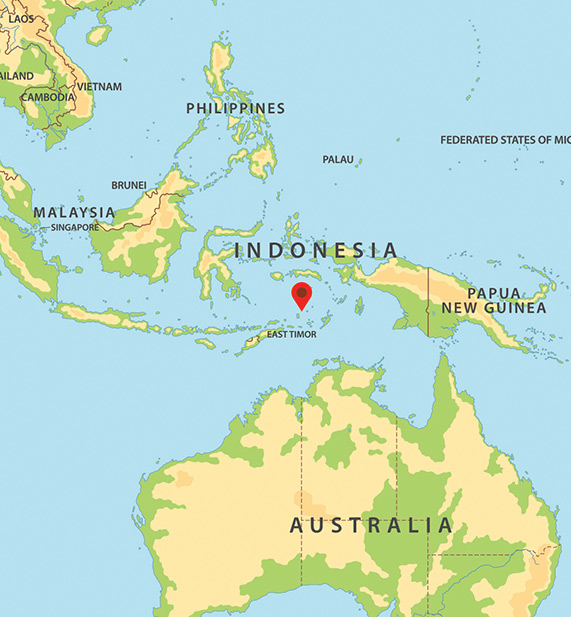
The remoteness of this region of Indonesia presents often insurmountable obstacles for the locals. They lack safety equipment and the electricity needed to make ice and keep their catch fresh. The uncertainty of the fishers’ income during bad seasons affects the entire community. It hinders access to education and healthcare and prevents them from buying land to farm.
We entered into a partnership with Banda Naira University that helps us provide scholarships for Fishery School students and aids fishery research and education. The partnership also helps us record and analyze catch data, and facilitate our rapid socioeconomic survey—which gave us insight from 30 Banda fishers.

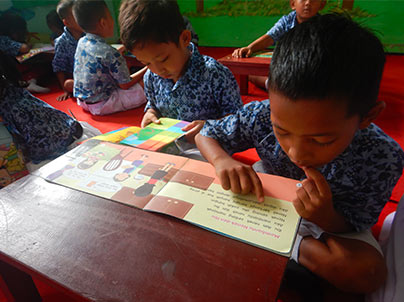
In addition, we deployed 150 reef structures to aid in the restoration of the reefs thanks to our partnership with the Banda Marine Conservation Office. We also support local schools by supplying books and more.
The continued environmental and educational support, combined with better catch data reporting, will increase traceability and sustainability and improve not only the lives of the fishing community but of everyone in the extended community as well.
The people of Banda have expressed their gratitude for the assistance provided by Napa Seafood Foundation, and we are extremely pleased to provide it.
Nourishing Frontline Heroes. Supporting the Seafood Industry.
Seafood for Heroes, USA
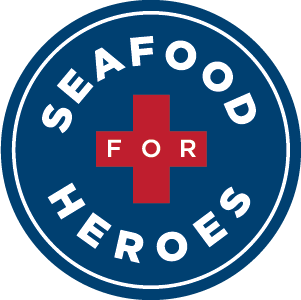
Like many industries, the seafood industry was affected by the COVID-19 pandemic. The Napa Seafood Foundation didn’t hesitate to act. We partnered with Red Lobster and local restaurants to create and deliver over 18,000 seafood meals to healthcare workers across America. This extremely well-received initiative also benefited the people providing seafood to our restaurant partners, and in turn, all of their employees throughout the seafood industry. Thanks to the success and groundwork laid here, we will be able to quickly activate and provide nourishing seafood to heroes working for the greater good, everywhere.
Creating a Sustainable Mahi Mahi Industry
Peru, South America
Peru’s Mahi Mahi industry is responsible for 50% of the world’s catch and the source of 79% of all Mahi Mahi imported to the United States. Maintaining responsible and sustainable fisheries is crucial to the environment and the longevity of the industry itself which supports over 10,000 fishers and their families.
The Peruvian Mahi Mahi Improvement Project and MSC certification journey started in 2013, but has only reached 43% completion with no significant advance. Achieving MSC certification and aligning with US import standards will not only increase sustainability, it will create new socio-economic opportunities in Peru.
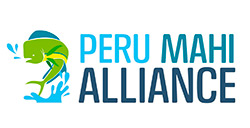
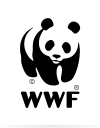
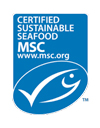
In partnership with the World Wildlife Fund and the Peru Mahi Alliance, we are creating and funding a program designed to support the MSC Fisheries Standard certification process—which has direct correlation to increased market price and a positive economic impact for the fishers. Our program also aims to strengthen fishery monitoring, traceability, supervision and surveillance while reworking the current framework to include fisher training to promote greater environmental responsibility.
A more sustainable and responsible program will not only increase market value for Peruvian Mahi Mahi, it will expand export opportunities, increase market value, decrease environmental impact and sea turtle mortality and positively impact the entire Peruvian Mahi Mahi fishing community.
Southern Smoke Foundation Emergency Relief Fund
The Napa Seafood Foundation is honored to partner with the Southern Smoke Foundation to provide direct relief to the many restaurant industry workers who have been so personally affected by the pandemic. We are funneling our full fund-raising support into its Emergency Relief Fund because we know that helping the people who keep the industry alive also helps the seafood and all other industries that rely on America’s restaurants moving forward.
Feeding the Growth of a Sustainable Source of Nutrition
Sogakope Village, Ghana
Only a few short years ago, the aquaculture programs in this tiny village near Ghana’s coast, which began in 2018, showed great promise—providing jobs and feeding the people of Sogakope and the surrounding villages.
Then, tragedy struck. A mass mortality event due to the worst known disease outbreak in history affected every farm. Then the COVID-19 pandemic forced the fish markets to shutter, further cutting off the people’s ability to generate a living income.
But now, hope is on the horizon, and we’re ready to rebuild these important programs to help the villagers create a sustainable source of income and nutrition.
This rural area of Ghana provides limited employment opportunities for the men and women who reside there. In addition, any blight on the seeds—which happened as recently as 2020—only adds to the detrimental impact on their food supplies. Creating a safe and environmentally responsible aquaculture program offers stability and food security for the entire region.
Build the largest integrated socioeconomic farm in Africa, which will host multiple species—including shrimp and tilapia—to create an interspecies synergy that generates food and jobs for the men and women of the village. The initiative, which is already responsible for bringing electricity to the area, will not only provide a living wage for 100 full- and part-time workers, but it will also feed nearly 400 people in the surrounding area, as well as show respect and care for select village elders by means of a paid pension.
This decades long program will positively impact the happiness, quality of life and livelihoods of the area’s people, allowing them to thrive and grow with a sustainable aquaculture program.
